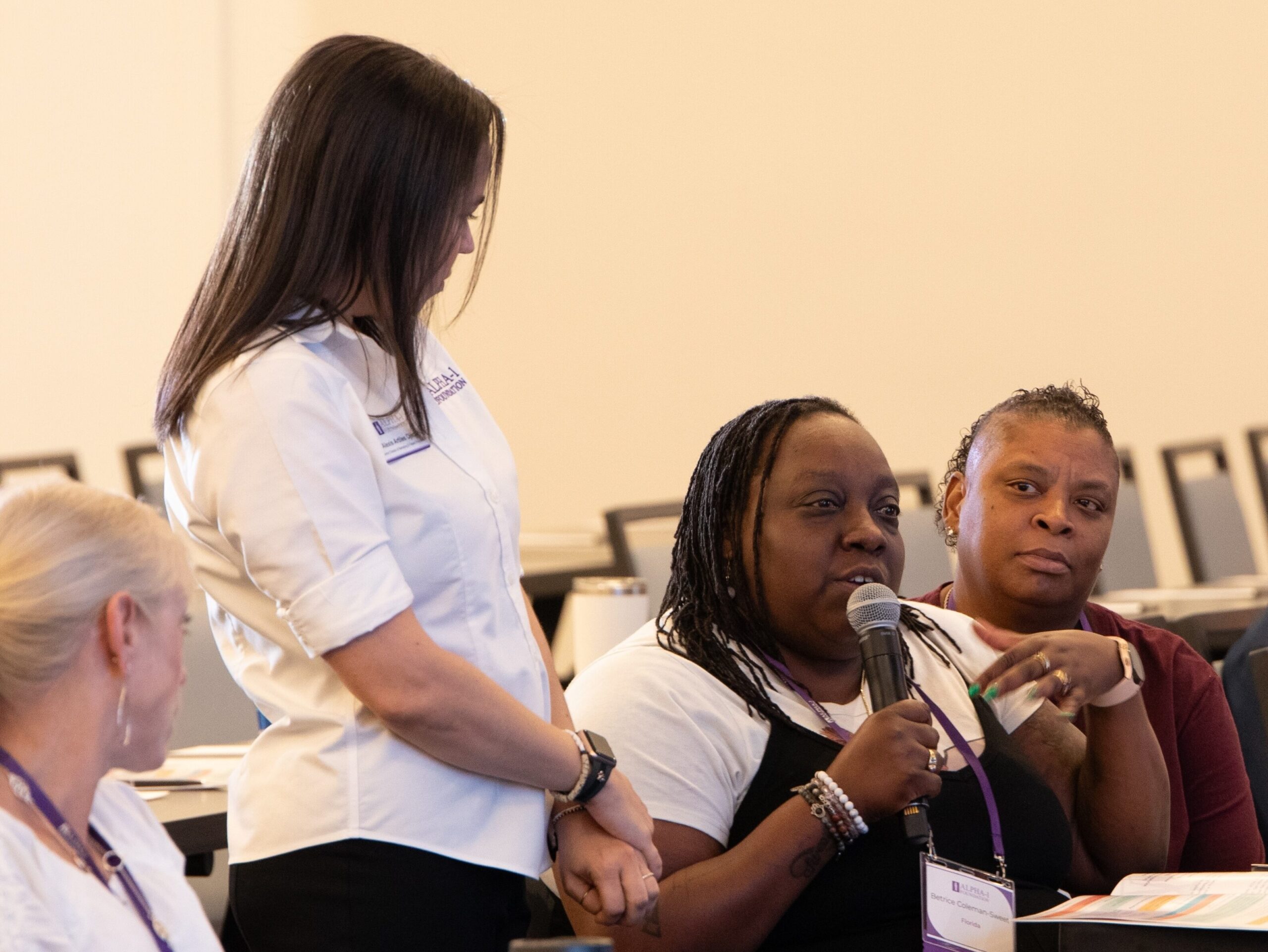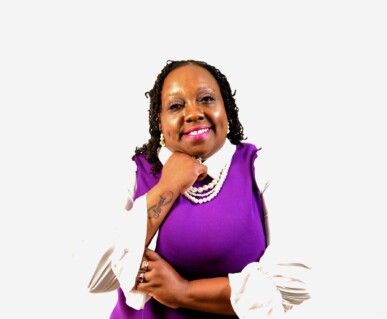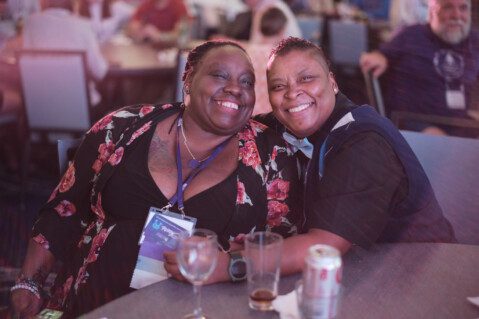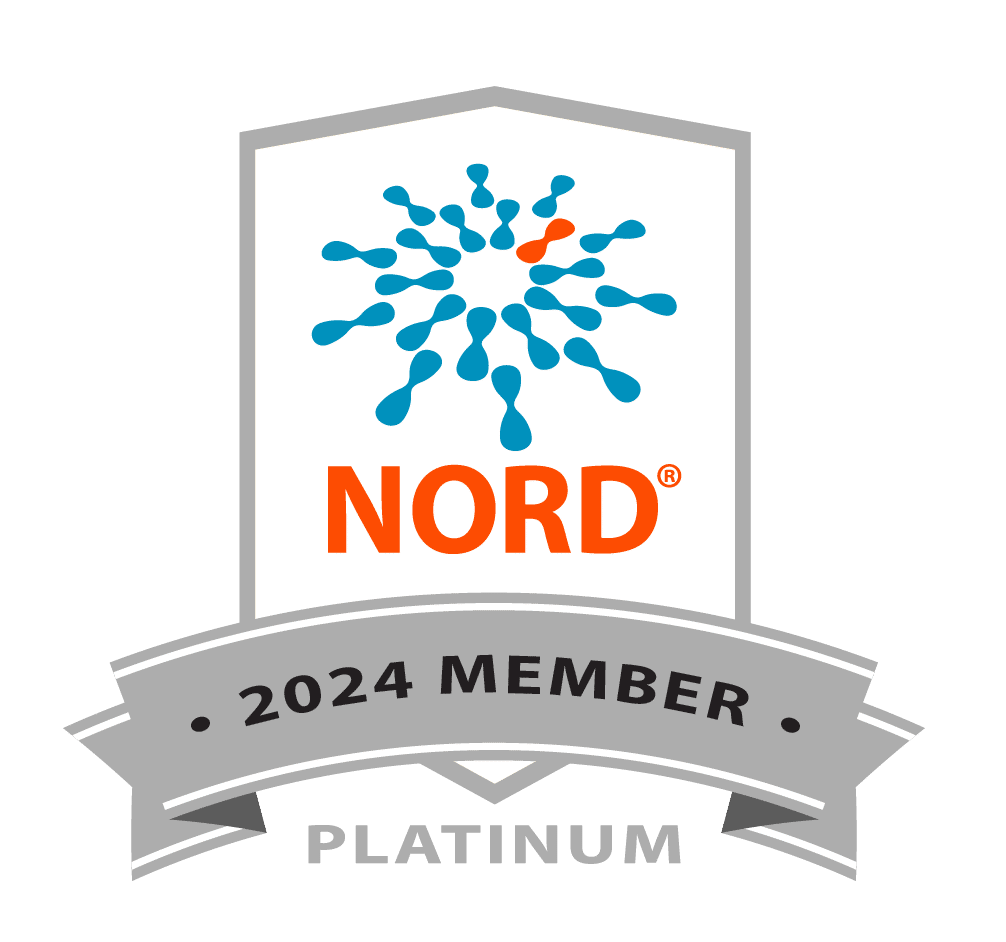As the annual Rare Disease Day approaches, we reflect on the stories that often go untold, particularly those surrounding rare diseases like Alpha-1 Antitrypsin Deficiency (Alpha-1). One such story is that of Betrice Coleman-Sweet, a woman whose journey to an Alpha-1 diagnosis was long and uncertain. Although she was diagnosed in May 2023, her experience highlights the challenges of living with an undiagnosed illness for decades and the strong sense of community and advocacy that can develop when the right diagnosis finally occurs.
Betrice’s struggle breathing began when she was just a toddler. Diagnosed with severe asthma at 18 months, she spent much of her childhood in and out of the hospital being treated with steroids. Betrice recalls: “It felt like I was always fighting to breathe.”
As she grew older, the issues persisted, leading to complications from the long-term use of steroids, including high blood pressure and diabetes. Doctors could not explain why her lung symptoms were so severe at her age., “I always thought it was just really bad asthma,” Betrice says. “But my pulmonologist kept telling me that something else might be going. In 2023, after a few serious infections, I was tested for Alpha-1.”
At 47 years old, Betrice was properly diagnosed with Alpha-1, a rare genetic condition that affects the lungs and liver. she admits. “I was confused and had never heard of this condition. I started Googling it, and I read information about COPD and how Alpha-1 is more common in people of European descent. I couldn’t make sense of it. How could I have this if I am an African American?” she admits.
For Betrice, this moment marked the beginning of a new chapter, a time of both relief and uncertainty. Finally, there was an answer to the health issues she’d been battling her entire life but there was also the overwhelming realization that she could have been diagnosed much earlier.
Betrice soon learned that her Alpha-1 diagnosis might not be as isolated as she thought. “My mom has experienced liver symptoms for years, but there was never a connection made to Alpha-1. Also, my dad has asthma, too,” she says. “It made me think about how this disease could be in my family, maybe even affecting my mom’s side. I started digging into my family’s history, and it was eye-opening.” Even more shocking to Betrice was the realization that Alpha-1 may have played a role in the death of her mother’s infant sibling, a tragedy that doctors could never explain. “It’s crazy to think about how long my family members have suffered with this and not known what it was.”
After her diagnosis, Betrice knew she needed support. She reached out to the Alpha-1 Foundation (A1F) and was introduced to a community of individuals who understood exactly what she was going through.
“In 2024, I went to the A1F National Conference in Miami, and it was amazing,” she recalls. “I was the only African American there diagnosed with Alpha-1. It was such a relief to realize I wasn’t alone, everyone welcomed my wife and I with open arms.”
Betrice met clinicians, researchers, and other patients and family members who had shared similar experiences. “The biggest takeaway for me was realizing that there’s support. There’s a whole community out there and if I reach out to someone, I know they’ll get back to me.”
One of Betrice’s biggest motivations for sharing her story is raising awareness of Alpha-1, especially in communities like hers, where the disease is not tested for and often overlooked. “As an African American, I didn’t even know that Alpha-1 could affect me,” she says. “There’s a huge lack of awareness in our community, and I want to change that. Alpha-1 isn’t just a disease for people of European descent; it affects people of all backgrounds.”
Betrice points to the importance of expanding research and testing to underserved communities, emphasizing that early detection can save lives. “If I hadn’t had a doctor who was persistent in finding out the cause of my symptoms, I may never have known I had Alpha-1. There’s so much work to do, but I believe we’re moving in the right direction.”
Looking ahead, Betrice is focused on advocacy and raising awareness for the diverse communities. “There’s a big push for newborn screening, which is something I fully support. If we can diagnose this condition early, people can on the right path before it causes serious lung and/or liver damage.”
Her message for Rare Disease Day is clear: don’t suffer in silence.
“If you have a rare disease, don’t let it isolate you. Find your voice. Find your community. You are not alone,” she urges. “This is a fight, but it’s one we can face together.”
Though Betrice’s diagnosis is still new, her strength and resolve have already become an inspiration to others. Her journey, filled with years of unanswered questions, is now focused on raising awareness, advocating for others, and fostering community among people living with Alpha-1. “I’ve found my voice, and I’m not going to stop using it,” Betrice says. “I want to help others who are struggling like I did.”
Through her journey with Alpha-1, Betrice has found something she never thought possible: a community of support and the hope that others won’t have to face the same struggles in isolation.
“I’m thankful to the Alpha-1 Foundation for connecting me with others and helping me understand my diagnosis,” she shares. “Together, we can make a difference. We can raise awareness and help people find the help they need.”
















Betrice, thank you for sharing your story. I am Alpha-1 positive myself and was just diagnosed about a year and a half ago. I have had lung issues all my life; pneumonia many times as both a child and adult, bronchitis, asthma, and RSV. Just 4 years ago I was hospitalized 10 days for RSV, pneumonia, and a yeast lung infection, but the doctors all said they really didn’t know what was going on with me. I’m 73 but have been very active, even though I need to use an inhaler with exercise, as I was diagnosed with exercise induced asthma, and I often wonder had I been diagnosed with this years ago would my life be different today, and would I have avoided so many illnesses over the years. I pray you have a healthy live ahead of you, and again, thanks for sharing your story.